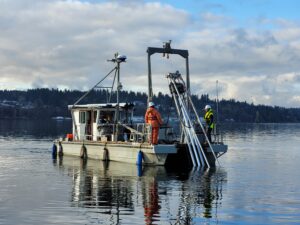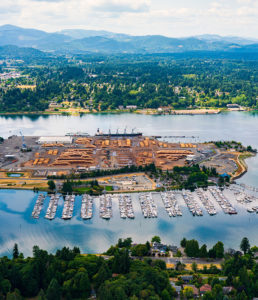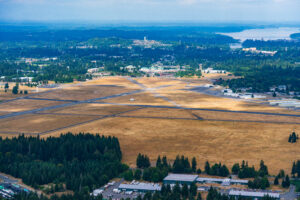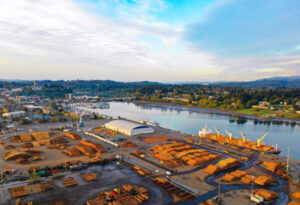Port of Olympia Blog
September marks Emergency Preparedness Month and considering recent local, regional, and global disasters, many of us are asking how resilient our community truly is when faced with significant emergencies. This month provides an opportunity to reflect on the crucial role the Port of Olympia plays—not just as an economic driver, but as a vital support system during emergencies.
While the Port is widely recognized for its diverse operations—an international shipping terminal, marina, airport, and real estate portfolio—its contributions extend far beyond economics. The Port is also a critical partner in safeguarding our community when it matters most.
Preparing for the Unexpected
Wildfires in Washington State are becoming more frequent, larger, and more destructive with each passing year. Indicators suggest this upward trend in wildfire frequency, size, season length, and overall risk is likely to continue. For Thurston County, that means wildfire preparedness is no longer optional—it is essential.
The Port of Olympia plays a key role in regional response efforts. The Olympia Regional Airport is a valuable asset for aerial firefighting operations, serving as a base for helicopters and fixed-wing aircraft, as well as a hub for moving personnel, equipment, and supplies quickly into areas threatened by fire. Its location and capacity make it a critical part of the infrastructure that supports wildfire detection, response, and recovery. The Port’s facilities also help strengthen supply chain resilience and ensure the community can respond rapidly when emergencies arise.
While wildfires represent a growing and immediate threat, the region must also prepare for the possibility of a major earthquake. The Cascadia Subduction Zone—capable of producing seismic events measuring 7.0 to over 9.0—could sever traditional transportation routes by collapsing bridges, damaging roads, and isolating communities. In that scenario, the Port of Olympia’s maritime and aerial access becomes even more critical, providing alternative routes for the movement of goods, emergency supplies, and recovery resources.
Together, these dual threats—wildfires and earthquakes—underscore the importance of resilient infrastructure and proactive planning. The Port of Olympia is committed to supporting Thurston County’s readiness for both the emergencies we see growing each year and the catastrophic events we hope never occur. By working closely with local and regional agencies, the Port is positioned to provide immediate support when it is most needed.
A Proven Track Record
Since the events of September 11, 2001, U.S. ports—including Olympia—have expanded their roles to emphasize emergency management and community service. With support from Homeland Security grants, the Port has invested in critical infrastructure and equipment designed for crisis response.
A few key examples:
- Large scale generators at the marine terminal can be rapidly deployed to provide electricity during emergency recovery, and the terminal warehouse can serve as a community hub for light, heat, shelter and food distribution.
- In 2022, the Port participated in Cascadia Rising, a major drill testing regional readiness for seismic events.
- In August 2025, the Olympia Regional Airport played a pivotal role in wildfire response for residents near the City of Rainier, serving as a hub for staging resources and coordinating critical support.
Beyond disaster response, Port facilities serve as training grounds for local fire departments, dive teams, and law enforcement agencies. These partnerships provide first responders with hands-on opportunities to strengthen skills in areas such as search and rescue, oil spill management, and crowd control.








